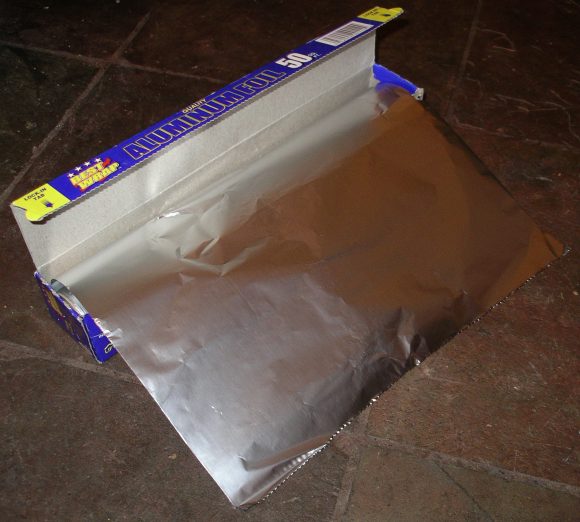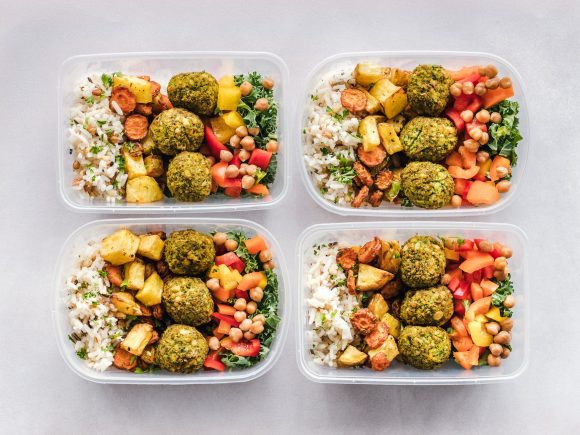Aluminum foil is used all around the world for many purposes. Whether you are grilling meat, storing food, or simply making a simple experiment, aluminum foil finds its purpose in either of it. But don’t you know that aluminum foil is dirty?
Aluminum is one of the most recycled waste on the planet. Aluminum cans and other aluminum things we use are so easy to recycle, in fact. However, the foil is one of the things that most recycling plants find hard to recycle.
There are many reasons why the foil is hard to recycle, and it is directly connected with our daily use of it. In reality, most recycling plants refuse to recycle this thing because it requires too much efforts to do so.
What makes aluminum foil hard to recycle? Can we make it easier for aluminum foil to be recyclable? If not, what are the options? Here in this article we are going to talk a lot about this.
From Bauxite To Aluminum Foil

Just like any other metals, aluminum is found in raw ore. The ore is called bauxite, and it appears as red dirt and clay mixture. Bauxite can be commonly found in many parts of the world, especially in Brazil, Australia, and India.
Aluminum in bauxite doesn’t show shining appearance just like silver in its ore. Even though it can be found near the earth’s outer crust, it is hardly visible with naked eyes, and it needs a lot of processes to get the shining appearance of the metal we know.
In the bauxite, there are many other compounds such as silica and iron oxides (which makes the color red). Thus, to harvest the aluminum content in the ore, we need to refine the ore and separate the metal from other compounds.
The refined form of aluminum is called alumina (aluminum oxide-AI203). It comes in white and powdery form that appears similar to thick chalk dust without any shining appearance. The powdery substance is then, via electrolysis and chemical reactions, dissolved to lose its oxygen bound to it.
We can only get half amount of aluminum from the total amount of alumina powder harvested this way. The aluminum content is then melted with tremendous heat, to get pure aluminum in its red-hot liquid form.
Energy Consumption

The molten aluminum is then processed further to make aluminum sheets which is then become the most basic ‘ingredient’ of aluminum products we know nowadays. It includes the foil, which is simply thin sheets of aluminum in its purest form.
From the explanation above, you should have realized that the making of the foil is consuming so much energy and resources. This consideration should be added when talking about the environmental impacts of aluminum foil.
Next, we will talk about the impacts of aluminum foil in its foil form. Producing the foil requires more energy than producing plastic wrap. It requires just 17% energy and produces 12% of greenhouse gasses to produce plastic wrap compared to aluminum foil.
Without being recycled, the foil can last up to 500 years in landfill. That is half the time required to decompose plastic wrap, and even though it says ‘half’, it doesn’t make the foil any better. Mathematically, we can make the foil better than plastic wrap by using it four times, which is not most households do.
Does it mean that aluminum foil is worse than plastic wrap? Well, it is not always that way. Aluminum foil’s recyclability and reusability is determining factor in this case. Again, we should mention that aluminum foil is not that easy to recycle.
Recycling Aluminum Foil

Most recycling plants refuse to recycle aluminum foil because it has been contaminated with food traces. Our best option to make aluminum foil recyclable is to minimizing food traces in it, and that’s almost impossible in the practice.
Food traces in the foil is despised by recycling plants because most plants recycle it in massive amount. Contamination of food traces such as barbecue sauce and mayonnaise can harm affect the purity of aluminum, in addition to the work of the machines.
Washing dirty foil after one use, preferably three times before being thrown out just like what experts calculated, is not that easy too. Aluminum foil is too thin and fragile to last the washing process once, let alone thrice.
And we should admit that it is almost impossible to reuse the foil after we use it to wrap our grilled meat. The wrinkles that appear after each use is preventing us from reusing it again effectively, let alone washing it before each reuse.
In short, indeed aluminum foil is recyclable and reusable. However, it is so hard to do it, and most of us just let the aluminum foil sheets end up in landfills after only one use. In this case, we will let it stay there for 500 years after huge amount of energy consumed to produce it.
Washable Container

So, in this case, which one is better, aluminum foil or plastic? Well, choosing either one means an ignorance to their real-life environmental impacts. The thing is, plastic is the archenemy of or planet, while the foil contributes only a bit less to the environmental waste.
The best option available is to not use both, and instead choose to use washable and reusable food containers that can be found as easy as those two things. Washable food containers contribute far less to the production of waste compared to both aluminum foil and plastic wrap, without any debate.
And to replace the function of the food-wrap foil in wrapping food during cooking process, the best option is to use leaves such as banana leaves or simply any other vegetable leaves. Not only it will enhance the flavor, it will do what the foil just does during the process.
Any kind of paper can be used too to replace the use of aluminum foil, even though paper is also one of the least preferred replacement because of its environmental impacts in the making. Thus, for usage of non-food wrapping, cloth is more preferred than paper.
Sources:
https://www.greenlivingdetective.com/



Leave a Reply